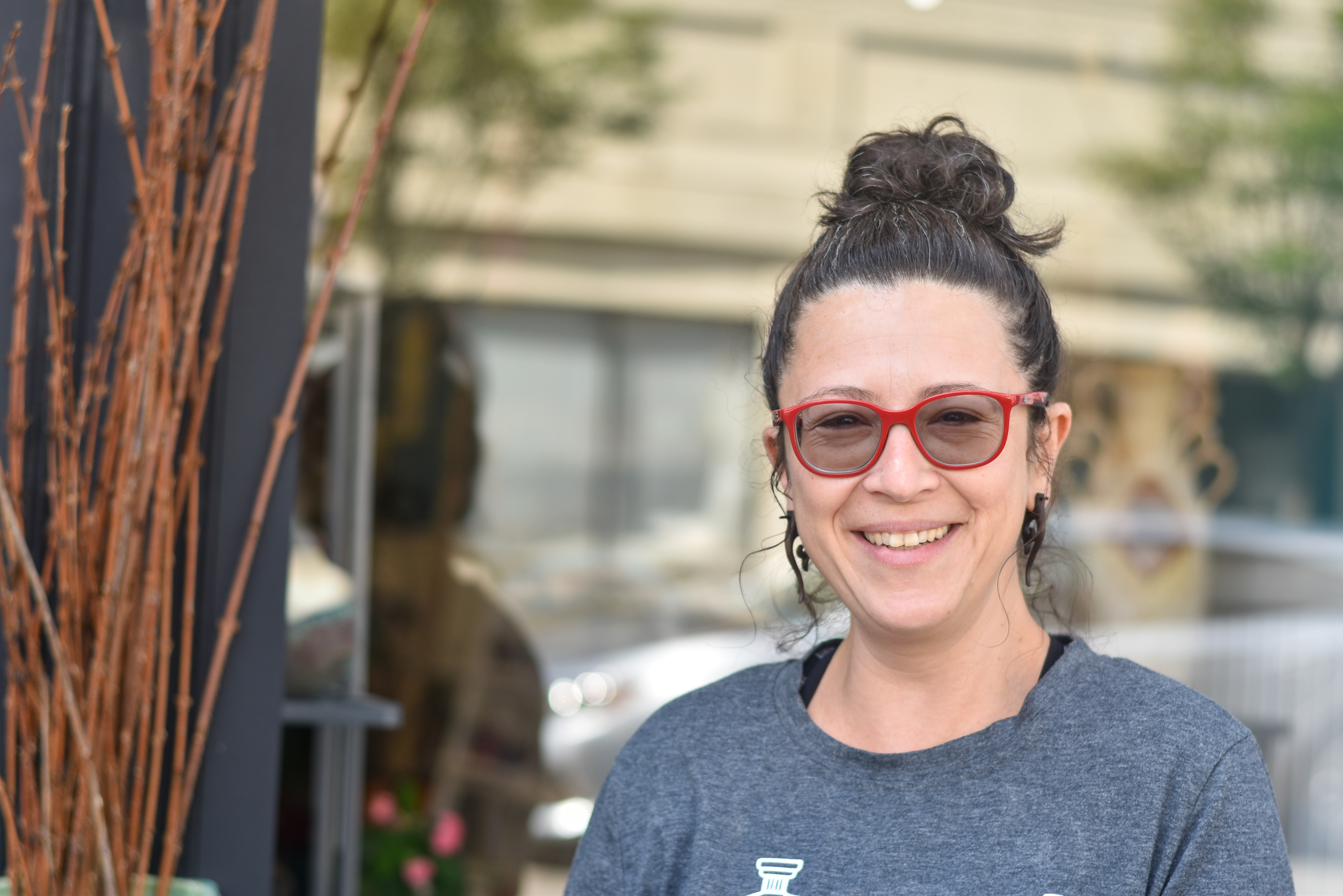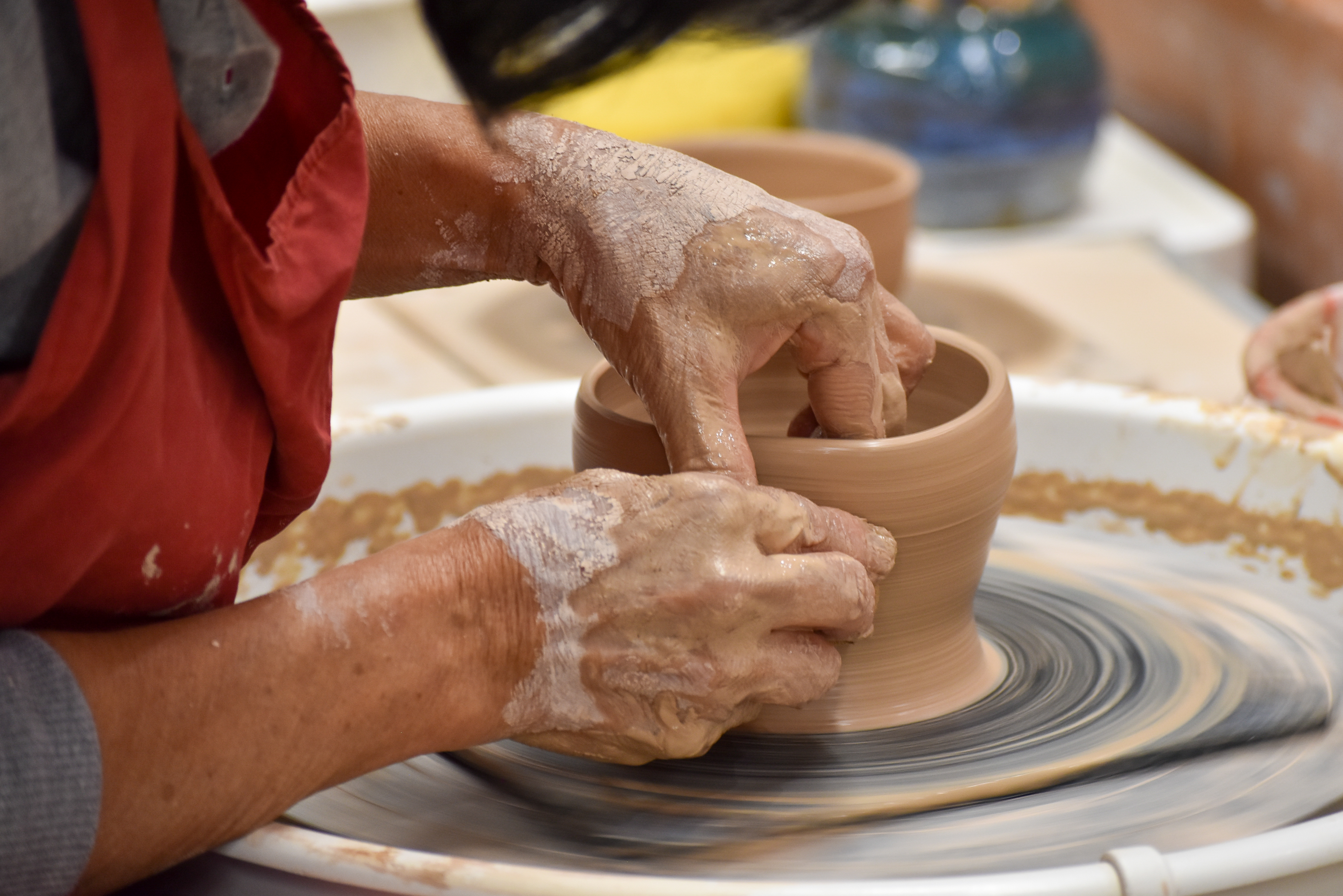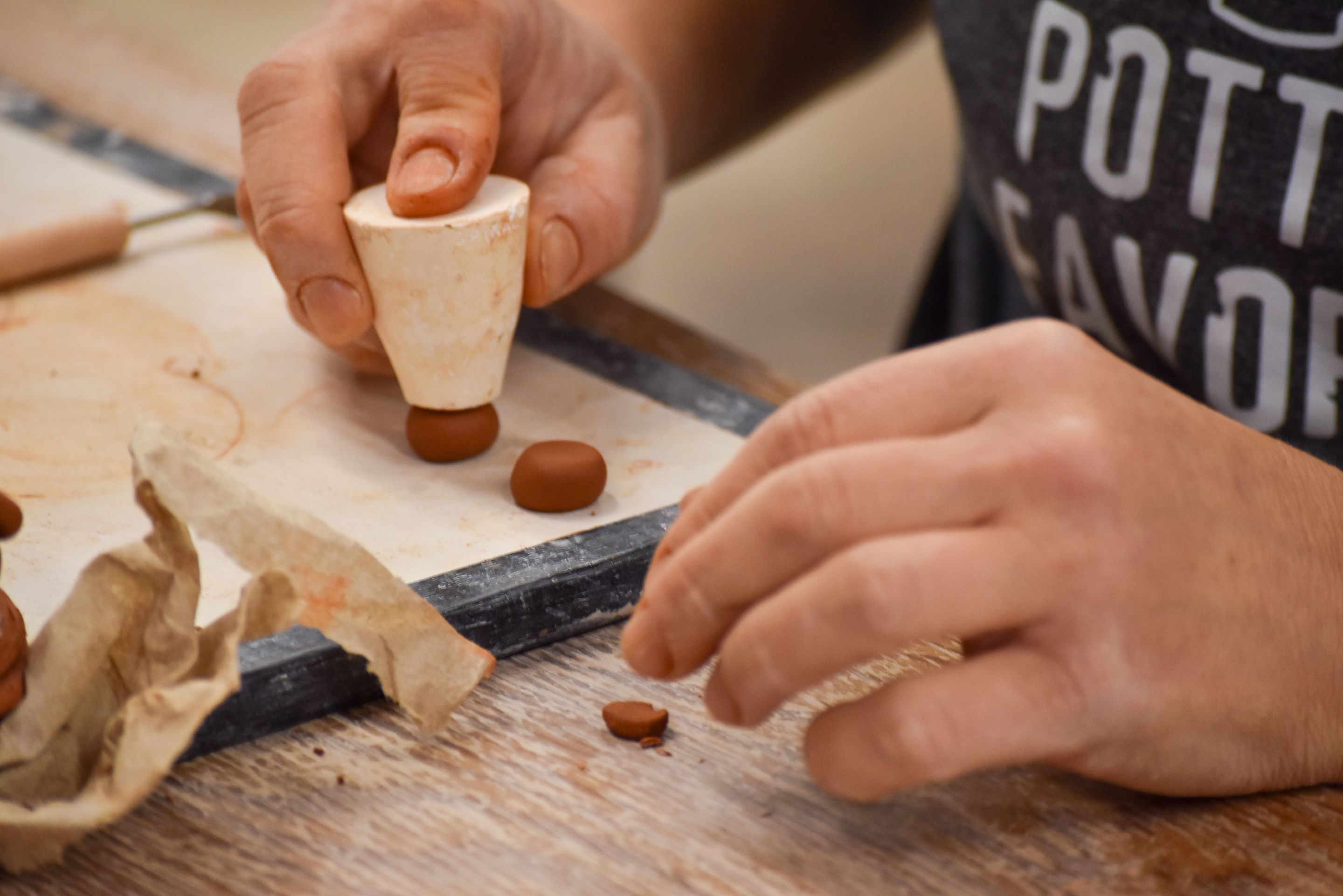Daniela de Sousa moved from Brazil to the United States when she was 19 years old. She felt lost when she first arrived, getting acclimated to a different culture and learning a new language. She ended up enrolling at Quinebaug Valley Community College (now part of CT State) in an English as a Second Language program.
"That was really pivotal for me," de Sousa said.
After earning her associate degree, she enrolled at Eastern Connecticut State University and earned a bachelor's degree in visual arts. She also earned a master's degree in arts education from the University of Florida. Now she's an artist who teaches part-time and runs a ceramics studio called Spiral Arts in downtown Willimantic.
De Sousa said that teaching was always the dream. In addition to being an educator at both ECSU and a local high school, she also considers herself an arts advocate.
"There's a misconception about the arts that it needs to have an end goal of making money. I think that that’s completely disconnected. If you’re making art for sale, then you’re already not making art," she said. "Art needs to be coming from a more intimate place. My mission here is to demystify this."

De Sousa hires students to help her run her studio and learn more about how to be an entrepreneur. In exchange, they get a free space to work on ceramics. Some of her students have now opened their own studios.
"I’m facilitating the space where they can start to explore how they’re going to shape their career to make a living, but also stay true and stay in the field," she said.
While de Sousa enjoys teaching at ECSU, she also struggles as a part-time faculty member. Arts studios require extensive maintenance, and she has no budget for a technician.
"I'm the only one who can do a lot of the maintenance for the studio," she said. "So it falls on me if I want to run a good class - I have to put it together."
Cleaning a ceramic studio entails dealing with specialized and sometimes toxic supplies, and she is constantly teaching janitorial staff because of high turnover in the position. De Sousa also has to adjust the pedals, clean kilns, calibrate tools and more. She doesn't get paid more for this work.
The lack of funding also means she has to donate materials. Her students often can't afford to buy the tools or supplies needed for projects. Even though students pay a studio fee, the university doesn't provide many supplies, de Sousa said.

De Sousa wishes that legislators in Connecticut understood how the arts impacts the population she teaches.
"The arts give them the opportunity to think critically, and to understand humanity from a different perspective that leads to a functioning society," she said.
No matter where her students end up working, de Sousa knows that they will use the skills of creativity and critical thinking that they learned in her courses.
Why did you join CSU-AAUP?
"I joined out of principle. I believe the union protects the rights of workers, and workers should be involved with deciding what's fair. Otherwise, we are susceptible to oppression."

